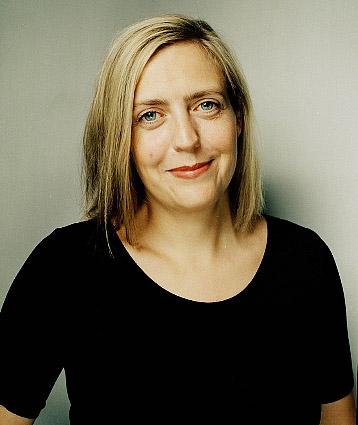
We sat down with Mette Heide, producer of Solar Mamas, to talk about why she and her filmmaking team chose this story, and what inspired them along the way. The film is part of Why Poverty? and Women and Girls Lead, and premieres on Independent Lens on Monday, November 5 at 10 PM (check local listings).
What impact do you hope Solar Mamas will have?
We need engaging and entertaining stories that give us other views of the world. Documentaries can do that. They can penetrate into unknown areas and relate real-life drama in a nuanced way. This film has those qualities. The main character, Rafea, lives in one of Jordan’s poorest desert villages. When she gets the offer of going to India to learn how to install solar panels she leaves her four children for the first time in her life. Rafea struggles to make a difference in the world. Her story is dramatic but also extremely inspiring to women worldwide because it’s about change and challenges.
What led you to make this film?
The film is part of Why Poverty?, a series of fascinating new documentaries that tackle the subject of poverty, focusing on issues such as food security, education, climate change and more. We were approached in 2010 to make a film about women’s empowerment. The film is perfect to reflect this subject.
What were some of the challenges you faced in making the film?
It’s always challenging to make an unscripted documentary because you can’t control the reality. This story has several turning points. It means that it’s compelling to watch but very difficult to produce.
What would you have liked to include in Solar Mamas that didn’t make the cut?
All important elements have been included in the film. We have been working with the brilliant Chinese American editor Jean Tsien. She has a fantastic sense of storytelling and what will interest and capture an U.S. audience.
Tell us about a scene in the film that especially moved or resonated with you.
Very early on in the film Rafea is told by her husband to come back to the village. At home she is devastated. Rafea passionately wants to change the life in the village and fights to be able to return to India. At some point she tells her mother about her visions. I don’t think women in the Arab world have been seen like this before. A process has started for Rafea and she can’t be stopped. That’s pretty amazing. She is fearless and intelligent.
What is Rafea doing now?
Rafea had her fifth daughter. She has continued to work on the solar project in the village in Jordan.
The independent film business is tough. What keeps you motivated?
I’m motivated to tell eye-opening and interesting stories. One-off documentaries are facing difficult times but luckily we have public television that still find it important to broadcast unique stories from around the world.
What didn’t you get done when you were making the film?
You mustn’t stop living just because you make film. That would be so sad.
What are your three favorite films?
Grey Gardens, When We Were Kings, Shoah
What advice do you have for aspiring filmmakers?
My advice is that aspiring filmmakers analyze what makes a narrative work. We need to tell compelling stories in order to capture future audiences.
